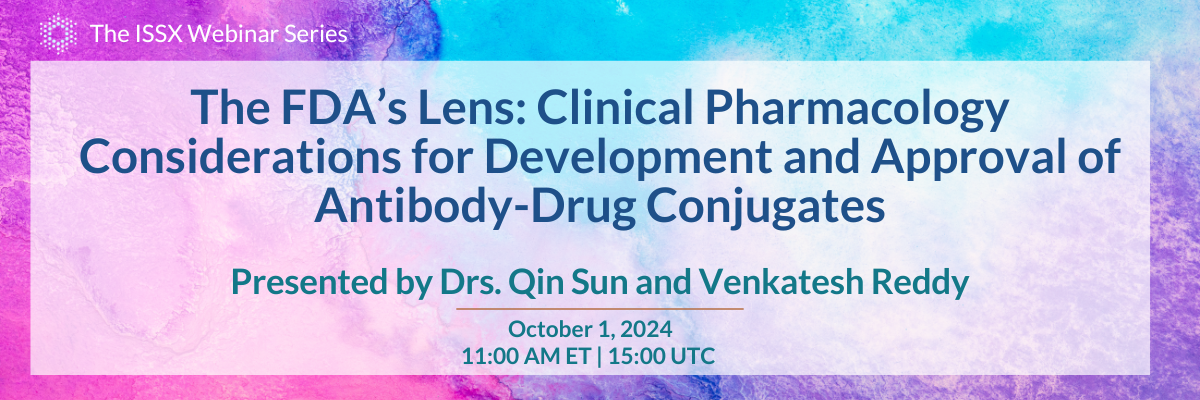
Clinical Pharmacology Considerations for Development and Approval of Antibody-Drug Conjugates
-
Register
- Non-member - $49
- Member - Free!
- Student - Free!
- Premier - Free!
Antibody-drug conjugates (ADCs) are distinct from both biologics and small molecule drugs. There are special clinical pharmacology considerations for ADC development and approval due to their unique structure and mechanism of action. The FDA has approved 11 ADCs as of Aug. 2024 and published the final guidance: Clinical Pharmacology Considerations for Antibody-Drug Conjugates in March 2024. Using approved ADCs as illustrative examples, this lecture will cover key clinical pharmacology considerations regarding ADC dosing strategies, intrinsic factor evaluation, and drug-drug interaction assessment. It will also cover other topics such as bioanalytical approach, dose/exposure-response analysis, QTc assessment, immunogenicity, and post-marketing requirements/commitments. Finally, examples for new generations of antibody conjugates will be discussed. This presentation will inform more efficient clinical pharmacology development strategies for ADCs and help bring more of these therapies to patients.

Qin Sun
Dr. Qin Sun is the Therapeutic Biologics Program (TBP) Biologics Lead in the Office of Clinical Pharmacology (OCP), CDER, FDA. Her job functions include guide and support reviews and policy development for novel biologics and biosimilars. She also serves as vice chair for Biologics Oversight Board in OCP, and chair for several biologics and biosimilar guidance working groups. Qin joined FDA in 2016. Before that, she worked at Pharmaceutical Product Development (PPD) from 2015 to 2016, and at Bristol-Myers Squibb from 2008 to 2014. Qin received her PhD from University of Virginia. Her work experience extends from drug discovery to drug development, and finally to regulatory review, focusing on biologics and biosimilars currently.

Venkatesh Reddy
Dr. Venkatesh Pilla Reddy is a distinguished Senior Director in the Global PKPD and Pharmacometrics group at Eli Lilly and Company in the UK. His extensive expertise stems from earning his PhD in Pharmacometrics through a collaborative program involving Pfizer, Janssen Pharmaceuticals, and Merck via TI Pharma in the Netherlands. His doctoral research centred on the PKPD M&S of antipsychotic drugs, and he has since made substantial contributions to the Quantitative Pharmacology and Pharmacometrics groups at Merck and AstraZeneca.
At present, Venkatesh provides invaluable Clinical Pharmacology and Model-Informed Drug Development support for a range of impactful projects in oncology, neuroscience, and immunology. Notably, he played a pivotal role as Deputy Topic Leader position ICH shaping ICH DDI guideline. Furthermore, he plays a leading role in influential cross-industry working groups including IQ TALG, ISOP, ASCPT, and ISSX M&S. He also serves as an esteemed Editorial Board Member for the Biopharmaceutics and Drug Disposition Journal and is a respected reviewer for clinical pharmacology/PKPD M&S-related journals.
